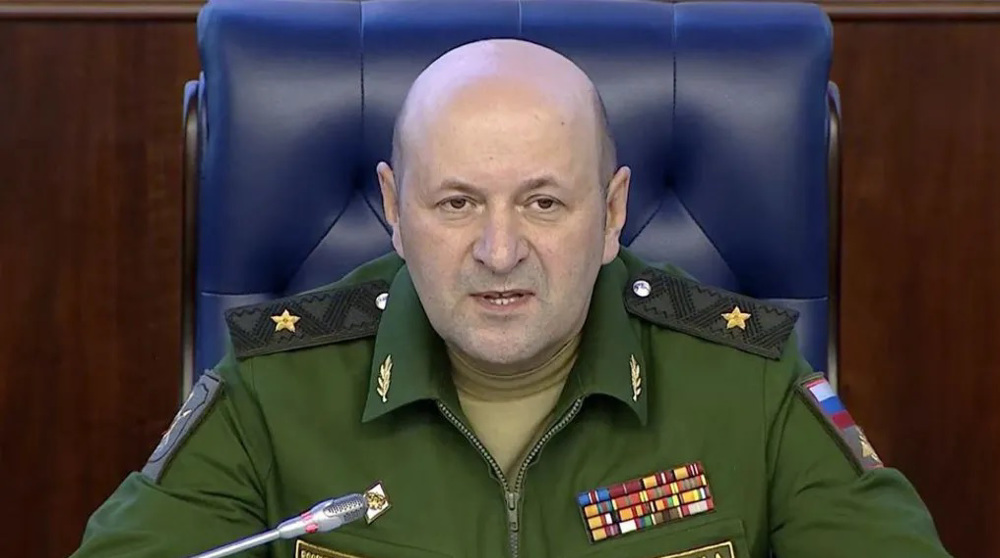Russia ‘ready to consider bailing out Greece’
Russia says it is ready to consider offering loans to debt-stricken Greece, which is struggling to secure financial aid from its Western creditors.
“We will support any decision (on the Greek debt crisis) that is proposed by Greece and our European partners,” Deputy Prime Minister Arkady Dvorkovich said, local Russian media reported.
“The most important things for us are investment projects and trade with Greece. If financial support is needed, we will consider this question,” he said.
Greek Prime Minister Alexis Tsipras has traveled to Russia, where he is due to meet President Vladimir Putin on Friday. Media speculate that the Greek premier’s visit to Moscow may be aimed at discussing potential loans from Russia, as Athens has been unsuccessfully trying to reach a bailout deal with several Western lenders.
Following the announcement by the Russian deputy prime minister, a spokesman for the Kremlin said it is too early to discuss Russian financial aid to Greece as Athens is yet to demand such assistance.

“It is first necessary to hear some proposals or some initiatives from our Greek partners to consider this issue,” Russian presidential spokesman Dmitry Peskov said on Friday.
Time running out fast
Greece and its creditors – the US-based International Monetary Fund (IMF), the European Commission, and the European Central Bank (the ECB) – have been unable to accommodate one another’s concerns in the course of negotiations over a last €7.2-billion ($8.1 billion) tranche of loans.
While the details of the negotiations have not been publicized, media reports say Greece’s troika of lenders demands harsh austerity measures to be implemented by Athens before the bailout can be paid, a demand Greece’s leftist government has so far refused to agree to.

Meanwhile, cash-strapped Greece has until June 30 to pay off €1.5 billion ($1.70 billion) in loan installments to the IMF. If Athens fails to make the payment, it will default on its debt, potentially heading for an exit from the European Union (EU). Such a scenario could also harm the EU, whose other economically struggling members may follow Greece’s suit if faced with similar conditions.
On Thursday, negotiations between eurozone finance ministers in Luxembourg over the crisis in Greece ended without yielding any results.
European Council President Donald Tusk said earlier that the eurozone member states will hold an emergency summit on Monday to “urgently discuss the situation of Greece at the highest political level.”
Greece has been in a state of economic crisis since 2009. The country has received two bailouts worth a total of €240 billion ($272 billion) from its three international creditors.
Hopes don’t fade for Greece
On Friday, Greece dismissed speculations that it may default on its debt.
Prime Minister Tsipras’ office said, “Those who invest in crisis and terror scenarios will be proven wrong.”
Referring to the eurozone summit, it said, “We are working toward the success of this summit.”
Tsipras himself warned in an interview with Austrian Kurier daily on Friday that a Greek exit would be “the beginning of the end” of the euro.
“The famous Grexit cannot be an option either for the Greeks or the European Union. This would be an irreversible step, it would be the beginning of the end of the eurozone,” he said.
The warning, however, can be interpreted as an attempt at brinksmanship, as Greece and its creditors seek to strengthen their own bargaining positions ahead of the June 30 deadline.
HJL/HJL
Eight Palestinians killed as Israel attacks Gaza school, hospitals
VIDEO | Rome, Milan host new protests in solidarity with Palestinians
Dec. 21: ‘Axis of Resistance’ operations against Israeli occupation
Spain jurists demand ties with Israel ties be cut
VIDEO | Press TV's news headlines
VIDEO | Iran honors top Science Olympiad medalists
VIDEO | Austrians arrested at Gaza protest in Vienna
10 killed in bus crash in western Iran










 This makes it easy to access the Press TV website
This makes it easy to access the Press TV website